Books
Among the many publications, Massimo Menichinelli has also authored, edited or co-authored several books.
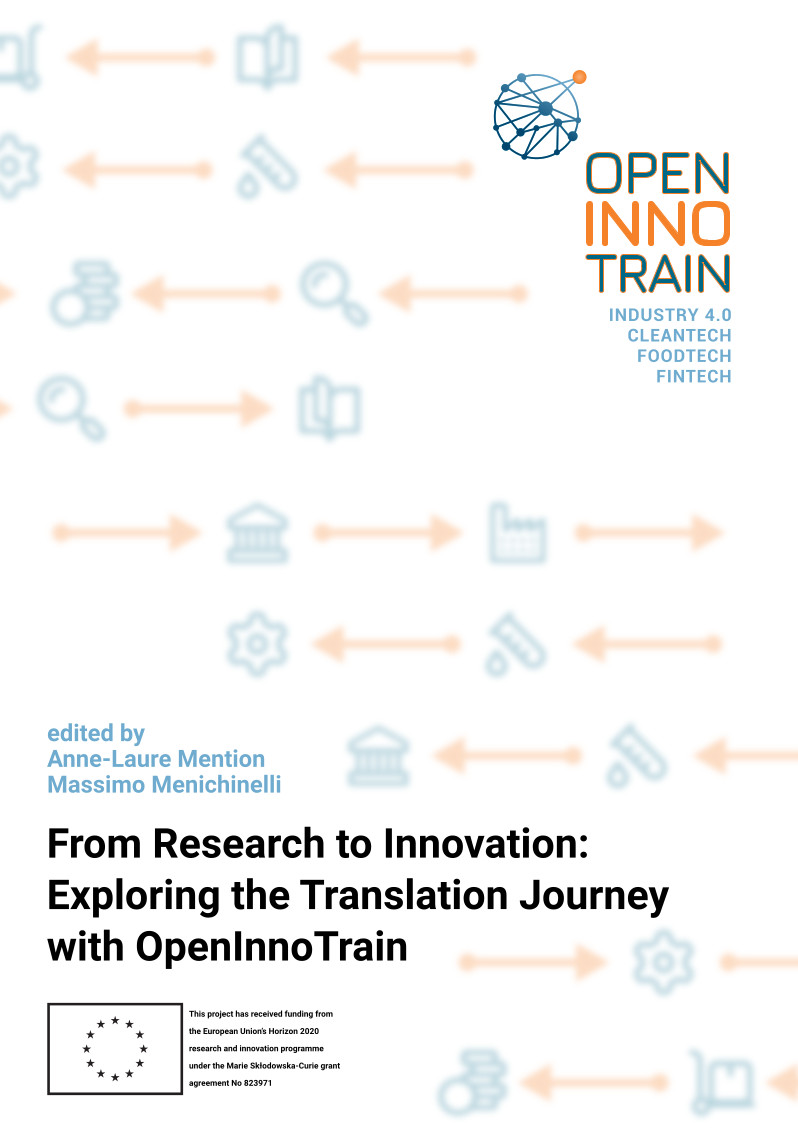
Mention, A.-L., & Menichinelli, M. (Eds.). (2021). From Research to Innovation: Exploring the Translation Journey with OpenInnoTrain (1st ed.). RMIT University Press. https://doi.org/10.5281/zenodo.5536932
How can we transform research insights into innovation and impact? This is the first book from the OpenInnoTrain H2020 MSCA-RISE project about this topic.
This book is published in English.
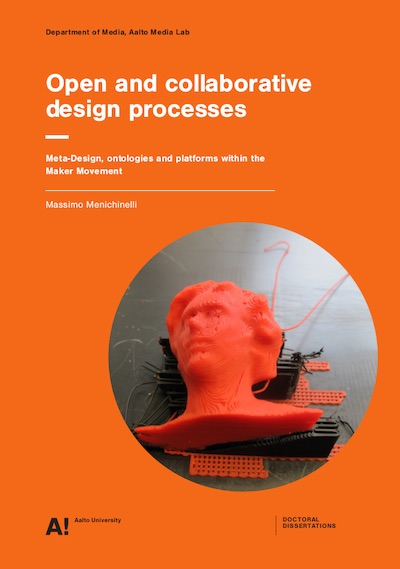
Menichinelli, M. (2020). Open and collaborative design processes—Meta-Design, ontologies and platforms within the Maker Movement. Aalto University. http://urn.fi/URN:ISBN:978-952-64-0091-4
How can participants in distributed systems collaboratively work together through tools and platforms for the designing and managing of collaborative processes? This book is the doctoral dissertation of Massimo Menichinelli for his doctorate in New Media at Aalto University - School of Arts, Design and Architecture - Department of Media - Aalto Media Lab.
This book is published in English.
Download it here.
Watch the video of the doctoral defense here; slides available here. Press release is here.
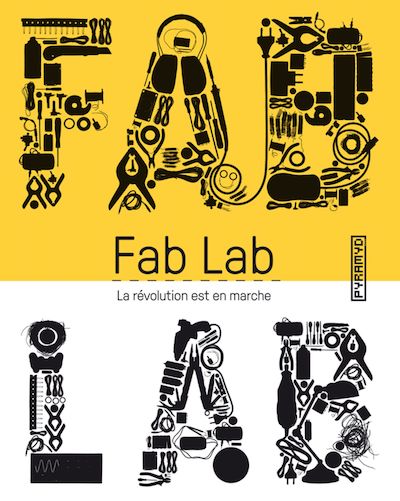
Menichinelli, M., Bosqué, C., Troxler, P., Raspanti, C., Schaub, A., & Neves, H. (2015). Fab lab : la révolution est en marche. (M. Menichinelli, Ed.). Paris: Editions Pyramyd.
The book details the emergence of Fab Labs, the philosophy behind them, and their commercial aspects, as well as the techniques, methods and processes used. A real-world example is presented in depth, and then 27 noteworthy projects and products are featured. Finally, it contains the interviews to early pioneers of the global community.
The first edition of this book was published in French; two further edition have been published, in English and Japanese.
You can read more about the French edition here.
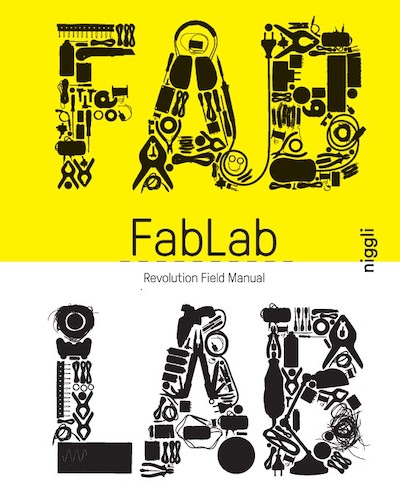
Menichinelli, M. (Ed.). (2017). Fab Lab. Revolution Field Manual. niggli Verlag.
You can read more about the English edition here.
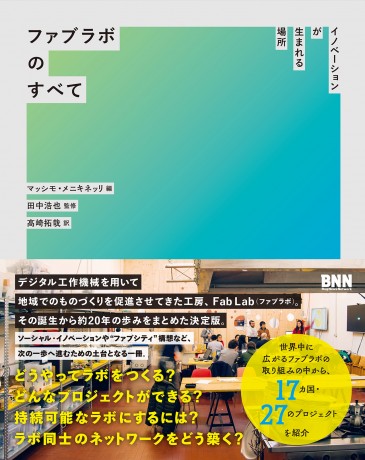
マッシモ・メニキネッリ, & 田中浩也. (2020). ファブラボのすべて イノベーションが生まれる場所 (高崎拓哉, Trans.). ビー・エヌ・エヌ新社.
You can read more about the Japanese edition here.
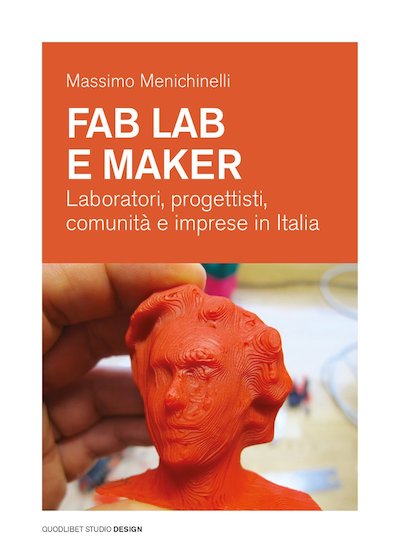
Menichinelli, M. (2016). Fab Lab e maker. Laboratori, progettisti, comunità e imprese in Italia. Macerata: Quodlibet.
This book details the history of the Fab Lab and Maker Movement, globally and in Italy. It explains the phisolophy, tools, techniques of Fab Labs and Digital Fabrication, exploring the social, economic and organizational dimensions of the global and Italian community. Furthermore, the book contextualized the work done by makers and Fab Labs within the most recent trends in design practice and research.
This book is published in Italian.
Read more here.
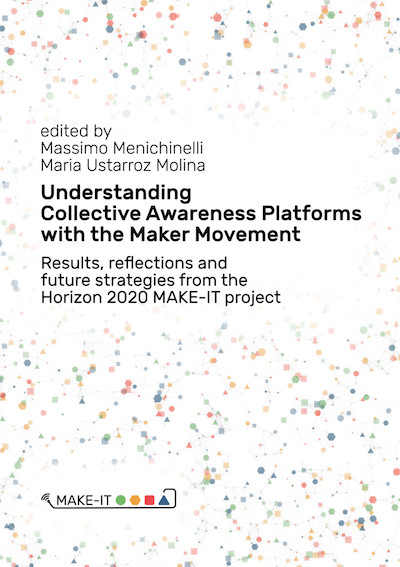
Menichinelli, M., & Ustarroz Molina, M. (Eds.). (2018). Understanding Collective Awareness Platforms with the Maker Movement. Results, reflections and future strategies from the Horizon 2020 MAKE-IT project (1st edition). Barcelona: Institute for Advanced Architecture of Catalonia. Retrieved from http://make-it.io/book/
MAKE-IT is a Horizon 2020 European research project focused on how the role of Collective Awareness Platforms (CAPS) enables the growth and governance of the Maker movement, particularly in relation to ICT, using and creating social innovations and achieving sustainability. This book collects results, reflections from the project and strategies for keeping the work and exploitation of the results in the future.
This book is an introduction of the work done during 2016 and 2017 within the MAKE-IT project.
This book is published in English.
Download it here.
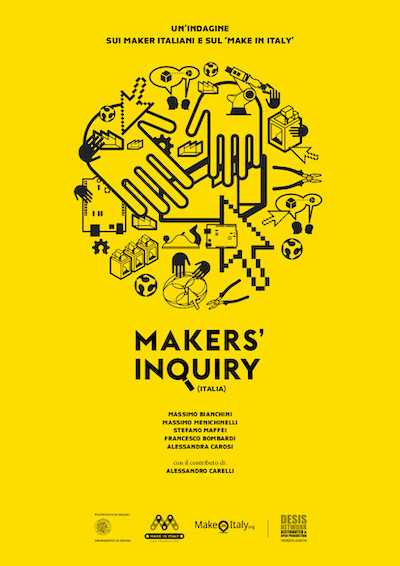
Bianchini, M., Menichinelli, M., Maffei, S., Bombardi, F., & Carosi, A. (2015). Makers’ Inquiry. Un’indagine socioeconomica sui makers italiani e su Make in Italy. Milano: Libraccio Editore. Retrieved from http://makersinquiry.org/
The idea of the Makers' Inquiry is simple: it is an open and replicable research format, aiming at exploring the condition of makers who operate in a certain geographical reality. The first edition was tested in Italy during 2014. Then other researchers could carry out the survey in their own countries. Therefore, in this way, it would be possible to extend over time the database and compare the results at international level.
This book is published in Italian.
Download it here.